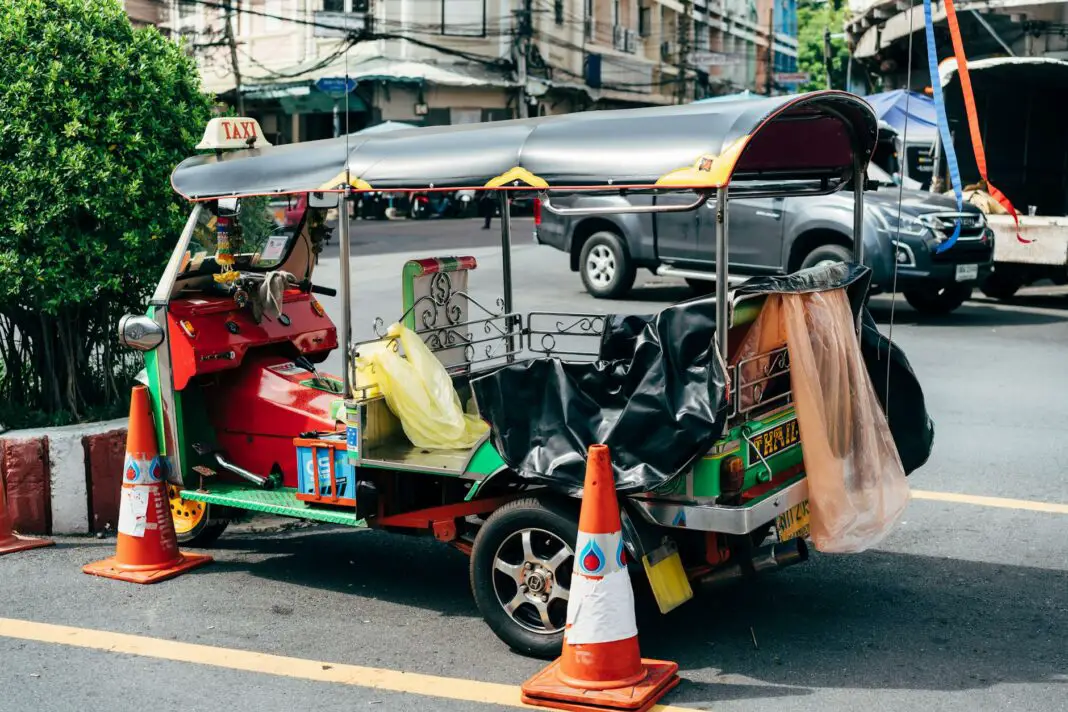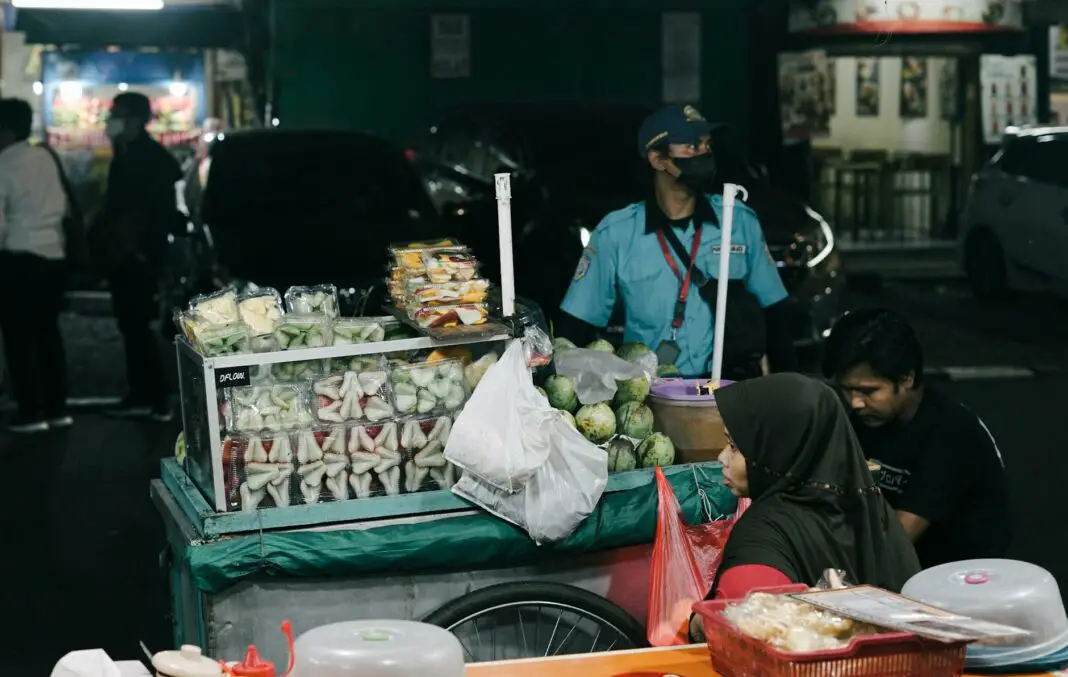Embarking on a trip to Thailand promises an exhilarating experience filled with vibrant culture, exquisite cuisine, and breathtaking scenery. However, navigating the rich tapestry of Thai customs can be challenging for travelers unfamiliar with local etiquette. Whether you’re savoring street food in Bangkok or exploring the serene temples of Chiang Mai, understanding the nuances of Thai manners can enhance your journey and lead to unforgettable interactions with locals. This blog post delves into critical Thai etiquette to help you avoid common pitfalls and embrace the beauty of this stunning Southeast Asian nation.
From the subtle art of the Wai greeting to appropriate behavior in sacred spaces, mastering Thai customs not only demonstrates respect but also allows you to immerse yourself fully in the local culture. Prepare to uncover both charming and shocking etiquette mistakes that tourists often make, ensuring you stand out for the right reasons during your Thai adventure. Let’s dive into the essential guidelines and fascinating insights that will enrich your travel experience.
Table of Contents
- Understanding the Wai Greeting
- Respectful Behavior in Temples
- Occupying Space Wisely
- Mind Your Feet
- Tipping Etiquette Explained
- Preserving the Monarchy
- Enhancing Your Journey with Awareness
Understanding the Wai Greeting
The Wai is more than just a simple hello; it’s a heartfelt expression of greeting and respect in Thailand. Locals bring their palms together at chest level, bowing slightly with a warm smile. This gesture reflects the importance of humility and connection within Thai society. Visitors often mistakenly opt for a handshake, which can come across as overly casual or even disrespectful. For those eager to fit in seamlessly, mastering the Wai could be the key to breaking down cultural barriers. However, do pay attention to the height of your hands; raising them too high can denote superiority, while too low may seem lackluster. Striking the right balance is essential to convey your sincere intentions.
Moreover, age plays a crucial role in social interactions. If greeting someone older or in a position of authority, a deeper bow accompanied by a higher placement of your hands is generally appreciated. Embracing this custom not only shows cultural sensitivity but also fosters immediate warmth with the locals you encounter, making your trip all the more memorable.
Respectful Behavior in Temples
Thailand is dotted with magnificent temples, where spirituality is woven into the very fabric of everyday life. Unsurprisingly, these sacred sites require visitors to demonstrate utmost respect. Many travelers err by entering sacred spaces in revealing clothing—shorts, sleeveless tops, and flip-flops can be considered offensive. To truly honor these age-old traditions, dressing modestly with your shoulders and knees covered is not just etiquette; it’s a sign of reverence. Many temples provide rental sarongs, but bringing your own lightweight, breathable cover is also a good idea.
While within temple grounds, it’s essential to remain quiet and respectful. Conversations should be hushed, and you should always ask permission before taking photographs, particularly of individuals engaged in worship or ceremonies. Taking these small but significant steps will not only protect the sanctity of these sacred places but also enhance your own spiritual journey while fostering mutual respect between you and the locals.
Occupying Space Wisely
Understanding personal space norms is paramount to a fulfilling experience in Thailand. Visitors often find themselves close to locals in bustling markets or busy streets, yet it’s essential to navigate these crowded environments with grace and mindfulness. Avoid blocking pathways or crowding individuals in conversation; instead, step aside and allow space for others to pass. Maintaining a polite disposition will earn you goodwill and facilitate more natural interactions as you explore different parts of the country.
Additionally, when seated—especially in public transport or restaurants—ensure that you’re not sprawling or encroaching upon others’ space. This understanding can significantly impact how you are perceived by the locals; a little awareness goes a long way! As you engage, people will appreciate your thoughtfulness, potentially opening doors to shared stories and newfound friendships.
Mind Your Feet
Feet are often viewed as the lowest part of the body in Thai culture, and showing the soles of your feet can be considered highly disrespectful. It is crucial to avoid pointing your feet at individuals, particularly those positioned above you in social hierarchies, such as elders or monks. Instead, cross your legs or sit in a manner that keeps your feet tucked away, as it offers a non-verbal display of respect.
When visiting temples, it’s vital to observe the practice of removing shoes before entering sacred spaces. Prepare to embrace this custom and display your own form of respect. Visitors often overlook this detail, leading to discomfort and potential offense in otherwise harmonious settings. By acknowledging and adapting to this unique aspect of Thai culture, travelers enhance their stay and reflect positively on the places they visit.
Tipping Etiquette Explained
Tipping is relatively new to Thailand and can provoke confusion among tourists. In high-end restaurants, a service charge may already be included in your bill, yet leaving a small additional tip is a gracious gesture that will be warmly received. In smaller eateries and street vendors, rounding up your bill or leaving loose change is appreciated but not obligatory. Understanding how to navigate these situations will invite enchanting exchanges and add to the warmth of your experience.
Importantly, always consider your surroundings—if locals are tipping in a particular setting, joining in is advisable. Your presence in such environments can positively impact your journey as everyone shares in the communal spirit of appreciation. Furthermore, when venturing outside the confines of establishments, consider tipping your guides or drivers; they often rely on these gestures of goodwill for their livelihood.
Preserving the Monarchy
Respect for the monarchy is deeply rooted in Thai culture. Defacing or speaking ill of the royal family is not only frowned upon, but it can incur severe legal consequences. Many travelers find themselves bewildered when encountering this strict adherence to respect, yet it’s essential to follow suit. Public discussions—especially negative ones—about the royal family are considered taboo and can lead to unforeseen issues. Instead, opt for more neutral conversations about aspects of Thai culture that celebrate its beauty.
Recognizing the cultural significance associated with the monarchy fosters deeper respect in both your travels and your interactions with locals. Thus, you become an ambassador of goodwill, sharing appreciation for the people and traditions that shape Thailand’s identity, thereby enhancing your ultimate journey.
Enhancing Your Journey with Awareness
Utilizing your newfound understanding of Thai etiquette emerges as a transformative element during your travels. Actively applying what you learn while journeying through this enchanting land reveals multitudes more than surface-level tourism. Engage in conversations with locals, enjoy traditional cuisine, and dive into the rich history that frames this beautiful country. Participation in cultural events or local festivals can also be eye-opening experiences, which bond travelers and local communities together.
While discovering hidden gems away from tourist hotspots, your respectful demeanor will undoubtedly invite others into the fold. As you connect with the vibrant community nestled throughout Thailand, you may even find yourself cultivating lasting friendships. Each interaction, guided by awareness of etiquette, illuminates deeper cultural insights and creates unforgettable memories as you explore the enchanting diversity of Thailand.
Embrace Your Thai Adventure with Cultural Sensitivity
In conclusion, immersing yourself in the rich culture of Thailand requires a commitment to understanding and respecting its unique customs. By avoiding common etiquette blunders and actively choosing to engage in meaningful interactions, you open the door to a deeper travel experience. As you embark on your journey, let the lessons learned here guide you toward appreciating the warmth of Thai hospitality and the vibrant history that environments offer countless travelers each year.
Frequently Asked Questions
What should I wear when visiting temples in Thailand? It is advisable to dress modestly, covering shoulders and knees. Loose, breathable clothing is ideal, and many temples offer sarongs for rent.
Is it customary to tip in Thailand? Tipping is appreciated but not mandatory. Round up the bill or leave a small additional amount at restaurants. Tipping drivers and guides is also a kind gesture.
How important is the Wai greeting in Thai culture? The Wai is a crucial aspect of Thai etiquette, signifying respect and humility. Using it appropriately can enhance interactions with locals.
What are the consequences of disrespecting the monarchy in Thailand? Criticism of the royal family can lead to severe consequences under Thai law. It’s best to approach discussions about the monarchy with respect and caution.
Are there any other cultural customs I should be aware of? Yes, be mindful of your feet, avoid disruptive behavior in public spaces, and maintain a respectful demeanor when interacting with locals to enrich your travel experience.
Image Credit: Pexels





